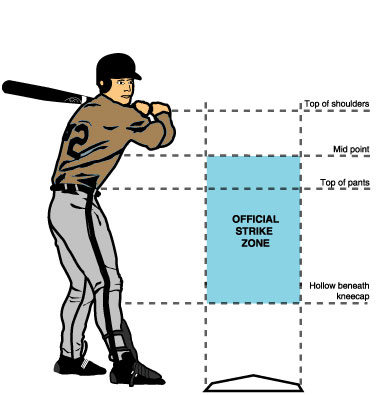- Build velocity slowly. Many high school (and above) pitchers have been spending time lifting and possibly long-tossing since games ended in the Summer or Fall. Some haven't touched a ball in a while if they play other sports. Either way, pitchers have to be careful not to overdo it too soon. Competitive juices sometimes have to be regulated in order to prevent injury. Jumping back on the mound and airing it out is a great way to get hurt. Pitchers have to resist that temptation and slowly build back their arm strength. Note: If you are still lifting, be sure to lift after you throw and never right before throwing.
- Throw away from the mound, pitch on the mound. As I explained in this previous post, throwing is different from pitching. If you are playing catch to get loose with a catcher who is standing up, get off the mound. If you are working on mechanics and pitching, get on the mound and have the catcher squat down. That's what you would do in a game so practice that way. Pitching to a standing catcher teaches you to throw up in the strike zone.
- One pitch at a time. Master command with the fastball before practicing another pitch. When you can throw 60% strikes with a fastball, then start on a change-up. When you get to 60% with both, then add a another pitch, and so on. Having eight different pitches is worthless if you can't get one over the plate consistently.
- Throw to the center. Early on, aim for the center of the plate. Stay away from the corners. Aim for the center until you get your command back. You will probably notice that when you do this many of your pitches will move to the corners based on your inaccuarcy and natural movement. There is a tremendous lesson for young pitchers here - Aim for the center of the plate and let your natural movement take it to the corners.
- Give equal time to the stretch. A pitcher's ability to pitch longer into games depends on how he pitches when runners get on base. It is essential that pitchers spend a great deal of time practicing all their pitches from the stretch position.
- Shoot for the knees. After getting the basic command down pat, focus on only throwing at the knees. When practicing, any pitch that ends up above the knees should be viewed as a bad pitch. Be a perfectionist when pitching down in the zone. The only exception is when you purposely practice throwing up in the zone.
- Be smooth and balanced. Think of pitching as a graceful activity instead of a power activity. Work on a well timed, mechanically sound, balanced, and smooth delivery. A "free-and-easy" motion is what coaches and scouts like to see.
- Schedule time to play around. Playing around and goofing off are not the same thing. "Goofing off" means wasting time. "Playing around" means scheduling time to tinker with different pitch grips on all your pitches. This is what many major league pitchers do while playing catch. Who knows, you might just stumble across a good sinker or a nasty new out-pitch.
- Chart your sessions. This has a lot of value but is rarely done. When beginning to throw in a regular routine using numerous pitches, have someone chart your balls and strikes to see how you are progressing. It also forces pitchers to focus on what they are doing more often since they are being scored.
- Get out your running shoes. An off-season running program certainly does not end when you start throwing again. It actually becomes more important to get into the habit of running after you throw in order to clean out the swelling and lactic acid that builds up after throwing.
 |
| Throw to the center of the plate, knee high. Anything higher is easier to hit. |
 |
| How you manage your time in here over the winter months could make the difference between good and great. |

One of the important aspects of pitching is the grip. There are hundreds of different grips that pitchers use on many different pitches. You really have to experiment and find out what is the most comfortable for you.
ReplyDelete